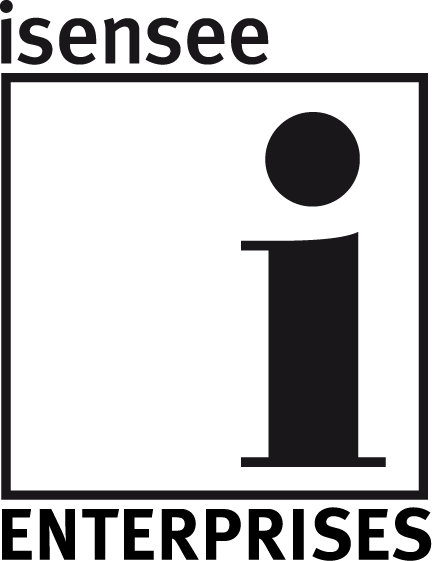Payroll Bureau
We take on German payrolls from one German employee up to several hundred employees working for a German employer. Your payroll accounts will be kept in German or English language. Payroll statements for your employees can be accessed by every employee using an easy to use internet portal allover the world.
Our services at a glance:
• Developing a German payroll accounting system tailored to the company’s individual needs
• Drawing up payroll statements for German employees
• Drawing up German tax withholding statements, social security contribution statements and any other declarations required
• Creating all payment transfer media for the payment of salaries, taxes and social security contributions in Germany (or)
• Managing payment transactions through a German trustee account
• Creating individual transaction lists to transfer payroll data to financial accounting – in electronic form if desired
• Drawing up management reports
• Drawing up declarations in accordance with German social security legislation, for the registration or deregistration of employees for example, or annual earnings statements
• Declarations for employers’ liability insurance associations and concerning the handicapped persons quota
• Advising on queries from the tax authorities, the health insurance organisations or the labour office, including the preparation of certificates
• Advice and help in case of external income tax audits or audits by the social security authorities
• Advice and support in processing problems of income tax and social security law
• Basic information about German Payroll Accounting and Social Security Contributions
Employees in Germany receive a net wage or salary from which tax and social security contributions have already been deducted. The employer withholds the tax that the employee is required to pay and transfers the money directly to the German tax office (Finanzamt). Therefore, all employees must be registered with the local German tax office.
German Social security contributions are also withheld by the employer after calculation of the gross wage and transferred to the employee’s health insurance company (which then distributes all of the contributions excluding accident insurance to all relevant parties). The employer separately has to pay the contributions for the accident insurance to the relevant Employers’ Liability Insurance Association (Berufsgenossenschaft) in Germany.
In contrast to some other industrialized countries, the core social security in Germany is financed collectively by means of a process of redistribution. The current costs (for pensioners, sick people or those in need of nursing care, and unemployed people) are paid directly from contributions by employees and employers.
German Social security contributions are made up of:
– Health insurance
– Nursing care insurance
– Pension insurance
– Unemployment insurance
– Accident insurance
Generally speaking, social security contributions are roughly shared equally by employer and employee in Germany. Only the costs for accident insurance are exclusively borne by the employer. In total, the employer’s share of social insurance contributions amounts to approximately 21 percent of the employees gross wage.
A common fund exists for all German social security components. Only the health insurance provider can be chosen individually by the employee.
German Pension Insurance
Pension insurance is compulsory for employees in Germany. The premium is 18.7 percent of the gross wage and is divided equally between employee and employer. The employee’s health insurance company is responsible for collecting these contributions.
German Health Insurance
Employees earning a gross wage of up to EUR 57,600 per year are compulsorily insured by one of the public health insurance providers (Gesetzliche Krankenversicherung, GKV). Employees whose earnings are above this income threshold can choose from both public and private insurance companies (Private Krankenversicherung, PKV).
The basic flat health insurance contribution rate (public health insurance) amounts to 14.6% of the employee’s gross income and is equally shared between employer and employee. Employees pay an additional contribution set individually by each public health insurance provider. The average rate of additional contributions for 2017 has been set at 1.1 percent by the Federal Ministry of Health. The German National Association of Statutory Health Insurance Funds (GKV-Spitzenverband) provides a list of all public health insurance providers and their additional contribution rates online.
Employee and employer also share the premiums for private health insurance plans.
German Unemployment Insurance
The premium for the mandatory unemployment insurance is 3.0 percent of the gross wage and is shared equally by the employer and employee. Contributions for unemployment insurance are collected by the health insurance company of the employee, which transfers the money to the Federal Employment Agency (Bundesagentur für Arbeit).
German Nursing Care Insurance
Nursing care insurance is organized in more or less the same way as health insurance, with a contribution rate of 2.55 percent of the gross wage. Employer and employee both pay half of the contribution rate, with childless employees paying an extra 0.25 percent on top of their contribution. The premiums are deducted in the course of payroll accounting and transferred to the nursing care insurance company via the health insurance company. Specific regulations apply in the federal state of Saxony.
German Accident Insurance
Statutory accident insurance provides coverage if an employee suffers an accident at the workplace or on the way to work. In contrast to the other four obligatory insurances (health, nursing, pension, and unemployment), the costs for accident insurance are exclusively borne by the employer.
Every employer must inform the relevant trading association about the establishment of his or her business and register with this organization. The accident insurance rate is determined on the basis of the company’s total remuneration sum and the hazard category of the work concerned (the hazard category is determined by the relevant employers’ liability insurance association). According to the German Social Accident Insurance (DGUV), the average accident insurance contribution in 2015 was 1.19 percent.


